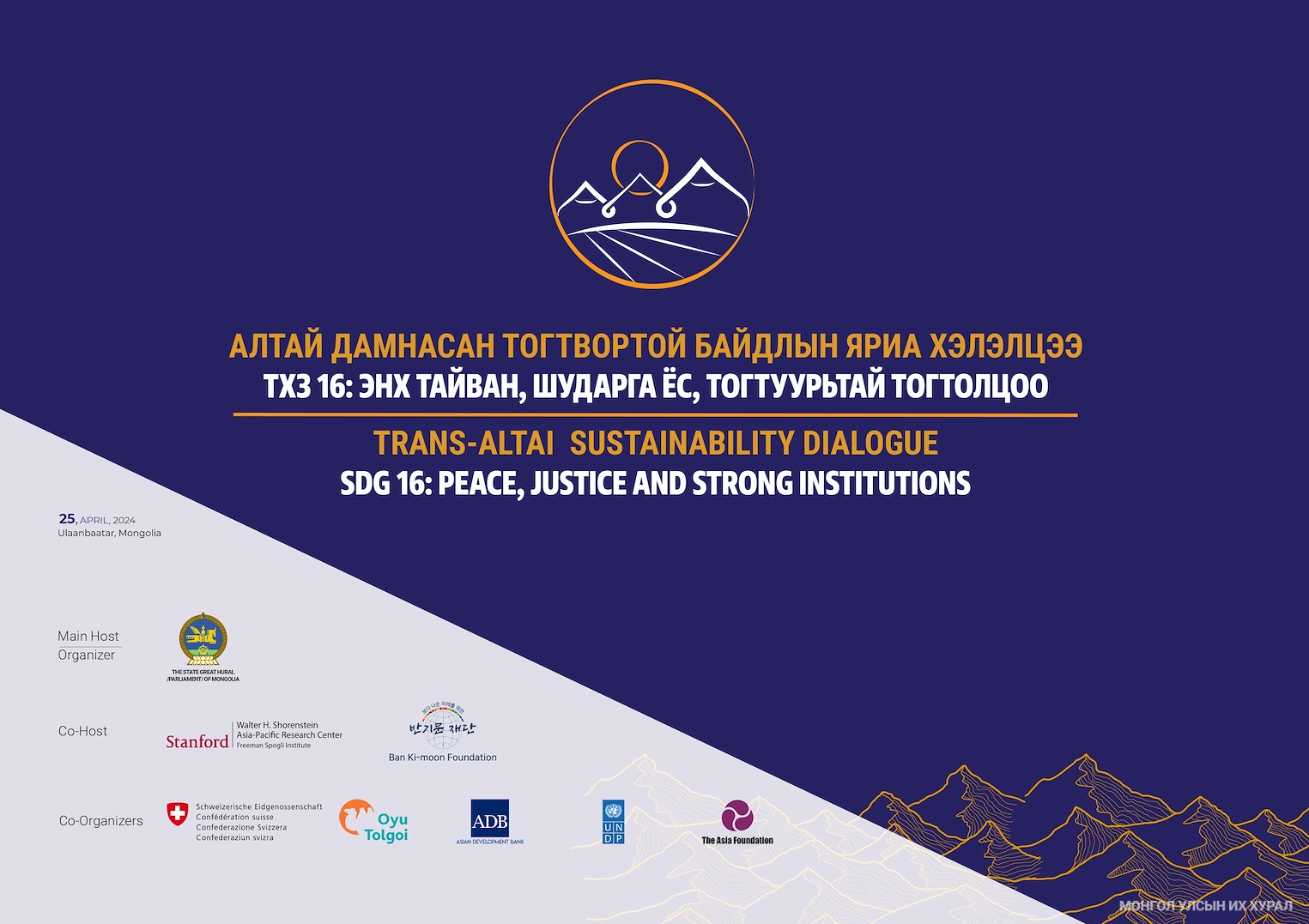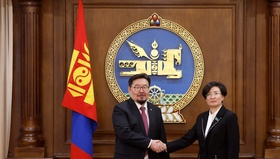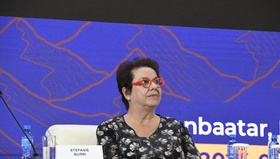The State Great Hural (Parliament) of Mongolia is convening the Trans-Altai Sustainability Dialogue on April 25-26, 2024, along with Stanford University’s Walter H. Shorenstein Asia-Pacific Research Center (APARC) and the Ban Ki-moon Foundation For a Better Future as co-organizers. The forum will bring together experts across academia, civil society, and government from the United States and Asia to share policy pathways and best practices to strengthen the capacity of institutions to achieve the targets for Sustainable Development Goal 16 of the 2030 Agenda for Sustainable Development.
The State Great Hural (Parliament) of Mongolia, along with co-host Stanford University’s Walter H. Shorenstein Asia-Pacific Research Center (APARC) and the Ban Ki-moon Foundation For a Better Future, announced today the convening of the second annual Trans-Altai Sustainability Dialogue to stimulate cooperative action toward achieving the United Nations-adopted 2030 Agenda for Sustainable Development. Held in Ulaanbaatar, Mongolia, on April 25-26, 2024, this gathering will focus on expediting action advancing peace, justice, and strong institutions — the vision captured in Sustainable Development Goal 16 (SDG 16) of the Agenda’s underlying 17 SDGs.
The Trans-Altai Sustainability Dialogue is a subregional convening of the Trans-Pacific Sustainability Dialogue, a joint initiative of the Ban Ki-moon Foundation and Shorenstein APARC held annually in Asia to scale action on the SDGs by activating new research and policy partnerships between experts from the United States and Asia and between governments and non-state actors. This year’s second annual Trans-Altai Sustainability Dialogue builds on networks and partnerships established at the June 2023 inaugural subregional Dialogue, which focused on promoting gender equality (SDG 5). This year, the subregional convening aims to provide a substantive platform for engagement on SDG 16, facilitating the exchange of best practices and policies to strengthen the capacity of local, state, and global institutions to reduce conflict and inequalities, enhance justice accessibility, and promote fair governance.
The vision encompassed in SDG 16 is at the core of the 2030 Agenda: that of a world anchored in commitments to promote more peaceful societies, provide access to justice for all, and build accountable, inclusive institutions at all levels. The embedding of SDG 16 in the 2030 Agenda acknowledges that peace, justice, and inclusion are necessary conditions for global development. Nevertheless, having crossed the midway point in the implementation period of the 2030 Agenda, none of the targets of SDG 16 are on track. Available data disconcertingly show stagnation, or even reversal of gains on SDG 16 targets related to violence reduction, access to justice, inclusive governance, and peaceful societies.
That is why the Trans-Altai Sustainability Dialogue sets out to tackle the imperative to share successful actionable approaches to achieving SDG 16 indicators and identify strategies to propel its implementation forward over the next seven years.
The first day of the gathering, held at the State Palace of the Parliament of Mongolia, will consist of multiple panels featuring government officials, academics, civil society experts, and industry leaders from the United States and across Asia. Keynote speakers and panelists will discuss lessons learned from initiatives addressing structural social injustices; evaluate strategies for building accountable and inclusive institutions for sustainable development; consider the opportunities and challenges of digitalization and technological innovation in advancing SDG 16; and examine the role of international organizations in achieving SDG 16.
Headliners include Ban Ki-moon, the 8th secretary-general of the United Nations and chairman of the Ban Ki-moon Foundation For a Better Future; Zandanshatar Gombojav, Chairman of Mongolia’s Parliament; Nurlanbek Shakiev, Speaker of the Kyrgyz Republic’s Parliament; Lezsák Sándor, Deputy speaker of Hungaria’s National Assembly; Rakhmetova Assem Kalashbaeva, member of the Senate of the Parliament of Kazakhstan; and Gi-Wook Shin, the William J. Perry Professor of Contemporary Korea at Stanford and director of APARC. Panelists hail from the United States and multiple regions across Asia, including Azerbaijan, Japan, Kazakhstan, Kyrgyzstan, Mongolia, South Korea, Taiwan, Turkey, and Uzbekistan.
Recognizing the role of subregional frameworks and networks in translating development policies into concrete actions at the national level, the first day of the convening will also include parallel sessions that will delve into strategies for promoting peace, justice, and inclusions through Altai Studies. These sessions will address issues including Central Asian and Mongolian perspectives of democratic transition and current trends in the studies of Altai history, languages, and culture. The second day of the dialogue will be dedicated to a field excursion and cultural events designed to foster a dynamic and inclusive atmosphere conducive to stimulating brainstorming and ideas sharing for future collaborations.

 Eng
Eng  Монгол
Монгол


